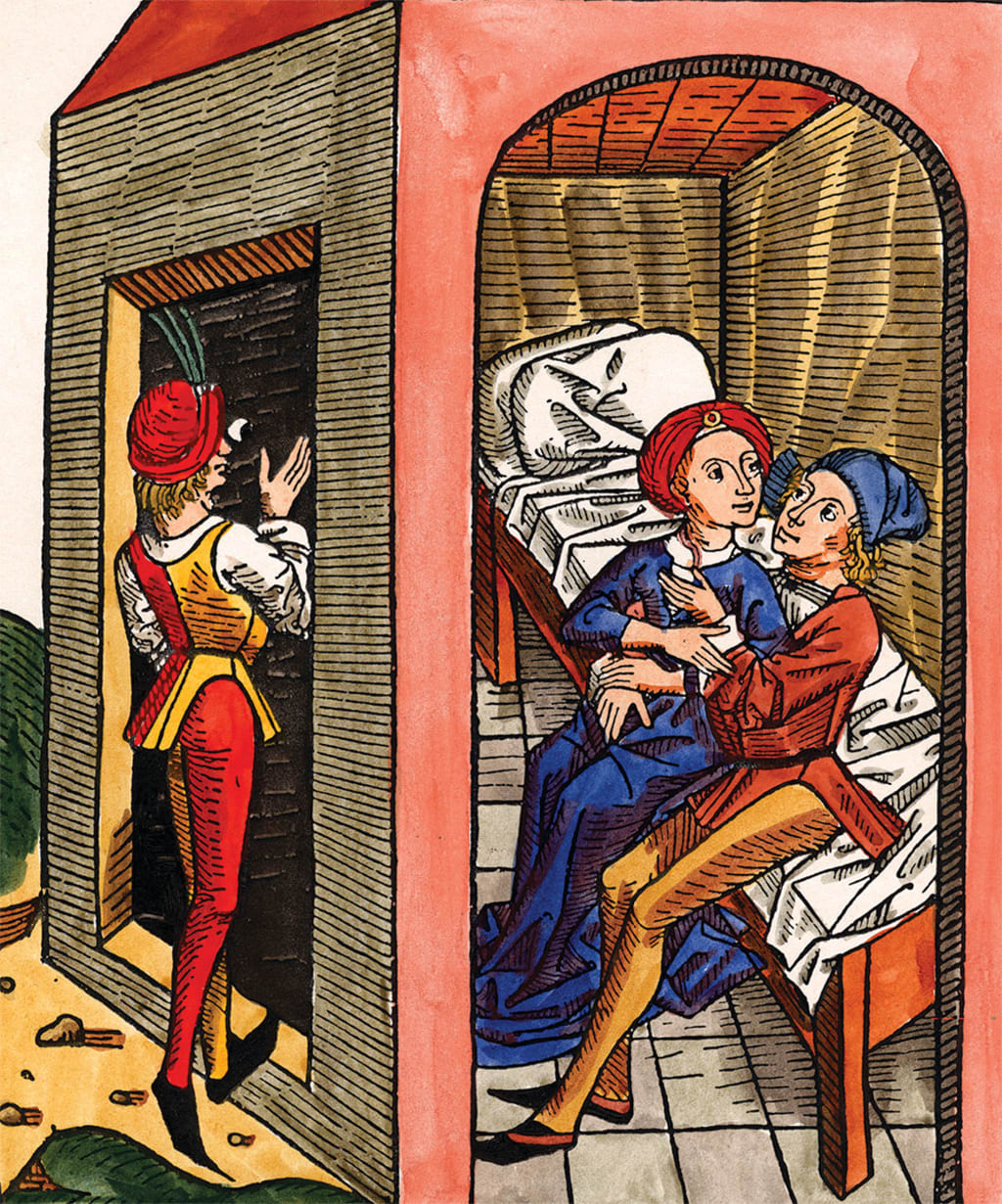LIFE INSIDE A MEDIEVAL BROTHEL
In the primary stages of civilisation, when people learned to trade, they soon recognised they could trade commodities for sex.

In the primary stages of civilisation, when people learned to trade, they soon recognised they could trade commodities for sex. And a scheme of exploitation was born and still exists to this day. In medieval times, the world became more civilised and cities and towns were growing fast. It’s where the idea of brothels took form and began one of the utmost injustices done to women.
In the Middle Ages, Nördlingen grew wealthy on the back of the textile trade. This caused a substantial population explosion and placed demands on the town’s council to deliver stability and peace for its inhabitants. The argument was made prostitution unrestrained was a bigger evil in humanity, and if it was eliminated, it would mean the public would become unrestrained and rape would rise. It meant if there were brothels, prostitution could be a commodity and would produce taxes for the government and access to distraction to men who might then trouble respectable women.
This rationale was validated by St Augustine, who noted that ‘if you remove harlots from society, everything will be unsettled on account of lust.’ Parts of Europe were already licensed and prostitution was the norm.
In 1471, the civic council of Nördlingen in the south of Germany got word of a scandal in the town’s brothel. It incited a criminal enquiry into the behaviour of the brothel-keeper, Lienhart Fryermut, and his wife, Barbara Tarschenfeindin.
In the middle ages, some German towns had what can be called municipal brothels that were formally licensed. The building was rented to the owners of the brothel, who run it instead of rental payments and taxes. They would then charge the prostitutes for board and food. They would then take one-third of whatever money the prostitutes made. The brothel could also function as an inn to charge customers with food and wine.
The prostitutes kept the remaining two-thirds and the tips clients gave them. The accounts of the brothels are mainly taken from the writings of literate people of that age. It’s very rare to see accounts from the prostitutes themselves.
So it’s necessary to talk about the story of the German town Nördlingen, where browbeaten prostitutes snatched their rights from the infamous owners, giving a voice to all the prostitutes of the time.
The story is about the maid of the brothel, Els von Eystett. She was forced into prostitution by the couple who owned it and was forced to abort her twenty-week-old foetus. She was then heartlessly forced to go back to work days after and forced to keep her abortion a secret under the threat of violence.
But a prostitute named Barbel von Esslingen had observed the events. She then spread rumours about the ghastly actions she had seen. When the local council heard the rumours, they began an investigation.
The cruel owner found out and had Els beaten up to make sure she would keep quiet. However, Els would not let it go. When violence didn’t work, the owner offered Els her freedom for keeping quiet, and she agreed.
Although Els was out of the scene, abortion was considered an offence against God himself and the authorities wouldn’t let it go. Els was called and the testimonies of her and the twelve prostitutes she worked were taken. Quickly, the tide turned for the worst for the owner, Lienhart, and his wife Barbara, the owners of the brothel. Anna von Ulm claimed when the women had their menstruation, they were forced to earn money.
Finally, the struggle of the prostitutes came to a productive end, and Lienhart and Barbara were sacked from their posts and evicted from the town. Barbara received an additional punishment by being branded on the forehead for the abortion of the baby.
Despite the acknowledgement of their role in society, in comparison with respectable wives, prostitutes were still considered immoral. Throughout the 1400s, any woman suspected of illicit sex risked being compared to a whore, and might even find herself forcibly placed in a brothel by the authorities.
The story of Els is a significant part of the history of brothels because, often, the idea is sentimentalised and distorted in a lot of modern-day literature. This does injustice to these women. Failing to recognise all of them were unique individuals, and sex work has always been a basic part of society.
About the Creator
Paul Asling
I share a special love for London, both new and old. I began writing fiction at 40, with most of my books and stories set in London.
MY WRITING WILL MAKE YOU LAUGH, CRY, AND HAVE YOU GRIPPED THROUGHOUT.
paulaslingauthor.com






Comments
There are no comments for this story
Be the first to respond and start the conversation.